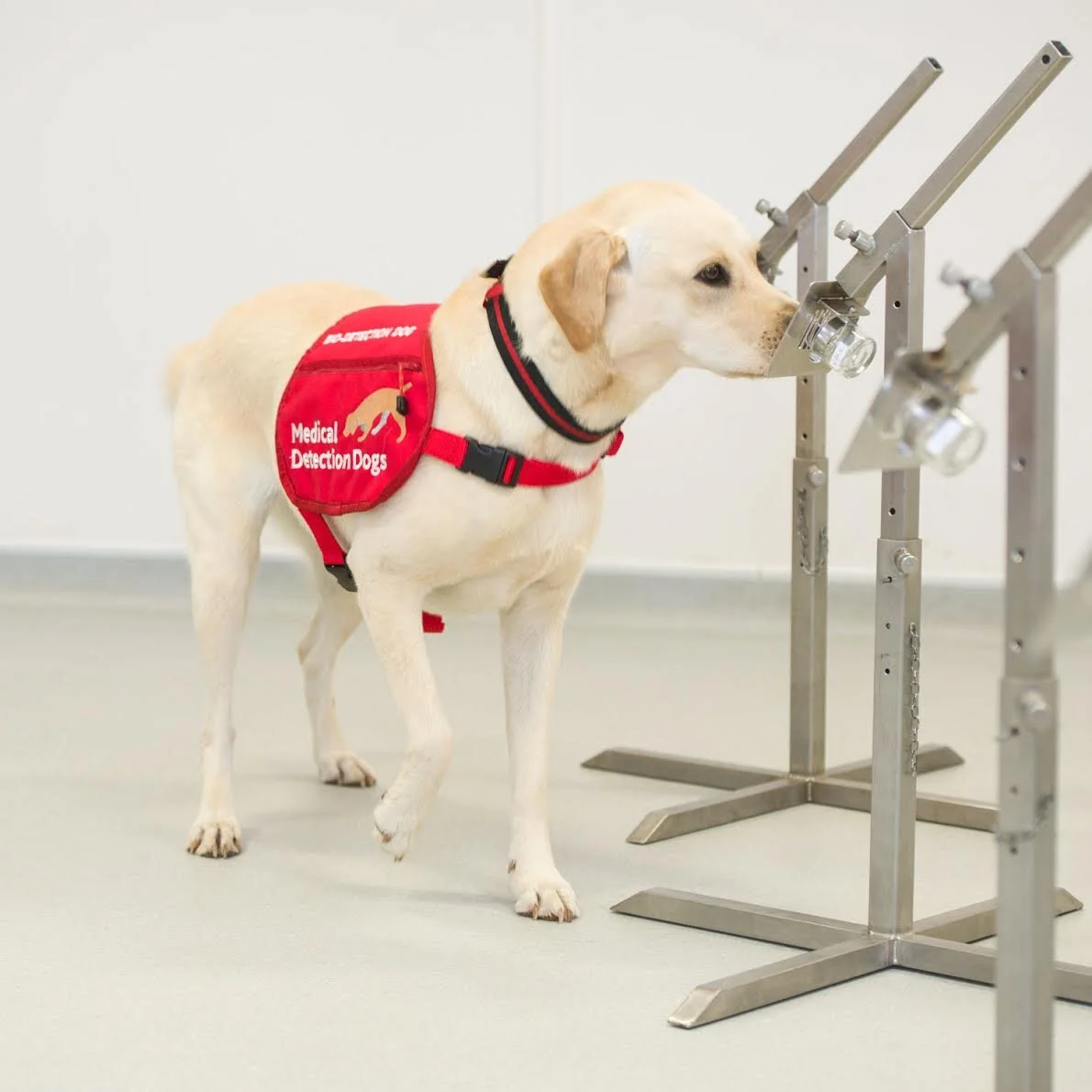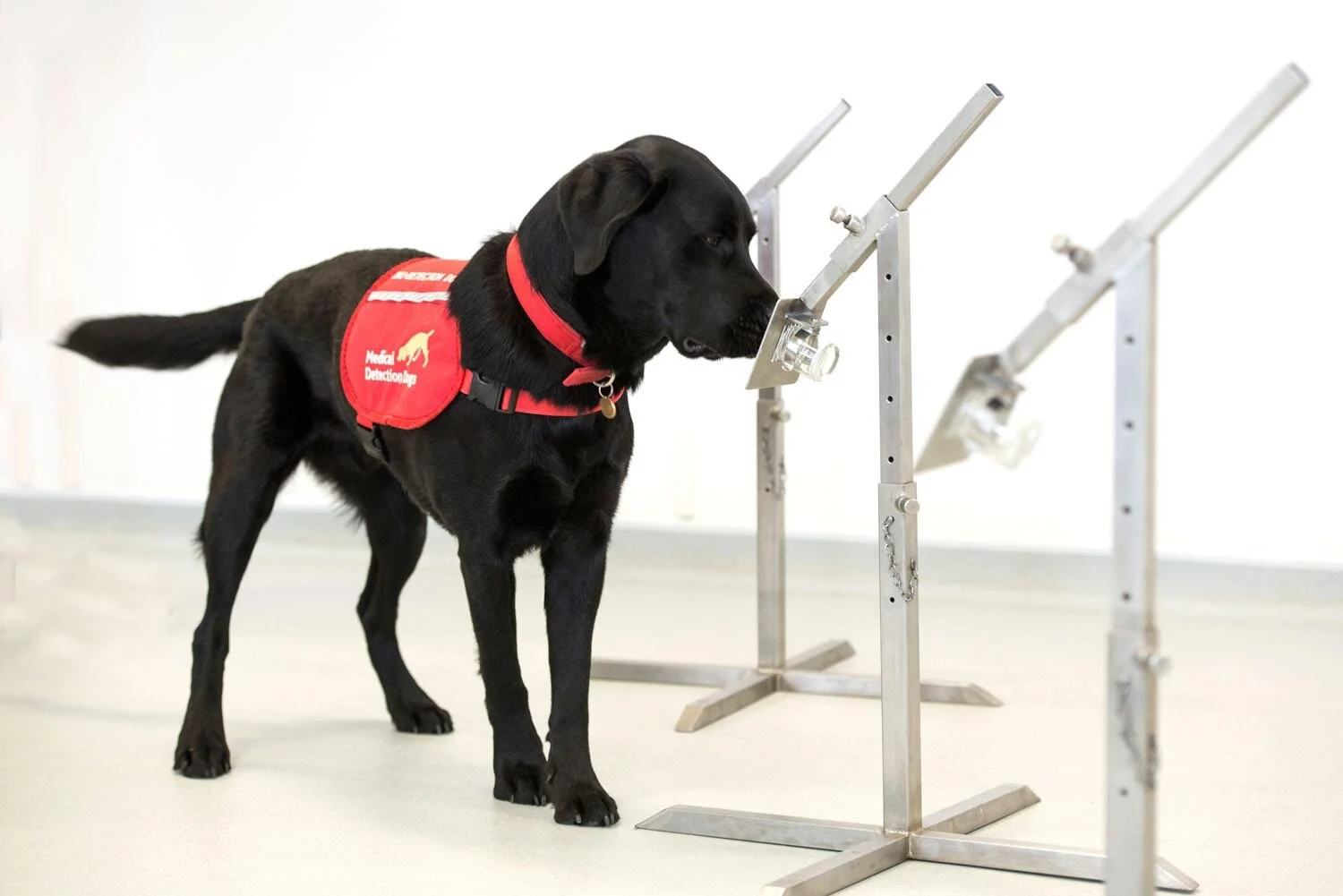Dogs and the Coronavirus: Can Dogs Smell COVID-19?
Imagine that instead of opening wide for a mouth swab you could get tested for the coronavirus simply by standing still and letting a dog gently sniff you. This scenario might soon become a reality thanks to the work of the U.K. organization and charity Medical Detection Dogs and its partners at the London School of Hygiene and Tropical Medicine (LSHTM) and Durham University.
Dogs’ sense of smell, which is 40 times more perceptive than our own, is already a terrific medical resource, alerting humans to oncoming seizures, low blood sugar, and even cases of malaria. The COVID-19 detection dogs could be used in public in as little as six weeks “to help provide a rapid, non-invasive diagnosis towards the tail end of the epidemic,” according to Gemma Butlin, a spokesperson for Medical Detection Dogs. She adds, “Dogs could be used to identify travelers [at airports] . . . infected with the virus or be deployed in other public spaces. The aim is that dogs will be able to screen anyone, including those who are asymptomatic and tell us whether they need to be tested.”
How Dogs Could Be Trained to Smell the Coronavirus
A bio detection dog trains at the Medical Detection Dogs facility in Milton Keynes, England. (Photo Credit: Bex Arts).
The dogs training to detect COVID-19 would go through the same training as other bio detection dogs: “By sniffing samples in the charity’s training room and indicating when they have found it. Following this training we would then transfer to detecting on individuals.” That the dogs could identify the virus on a non-human surface suggests that they could also aid in clearing businesses for reopening, indicating a space is safe for customers.
Though a tiger at the Bronx Zoo was recently diagnosed with the coronavirus, Medical Detection Dogs is confident in the science that indicates that dogs cannot contract the disease. As an extra assurance, “The dogs will be trained on non-infectious samples and will not need to make contact with the individuals they are screening,” Ms. Butlin says.
So Will the Dogs Be Able to Sniff This out After All?
These medical detection dogs like the one pictured above can screen up to 750 people per hour and could support ongoing efforts to test for COVID-19. (Photo Credit: Bex Arts).
All of this work is contingent on the premise that COVID-19 changes a person’s smell and body temperature significantly enough for a dog to detect the difference. ARCTEC (Arthropod Control Product Test Center), which has laboratories at LSHTM, believes there’s a “very high chance” that the coronavirus has a unique smell. If already-trained medical detection dogs can distinguish COVID-19 in scent samples from both infected and uninfected patients, the intensive training program will begin. Much hope rests in the four paws - or, rather, the 300 million olfactory receptors - of these amazing pups.
If you’re interested in learning more about and supporting this work, click here.


